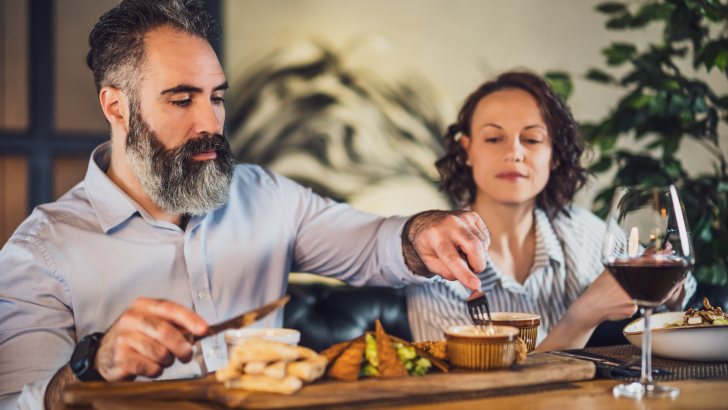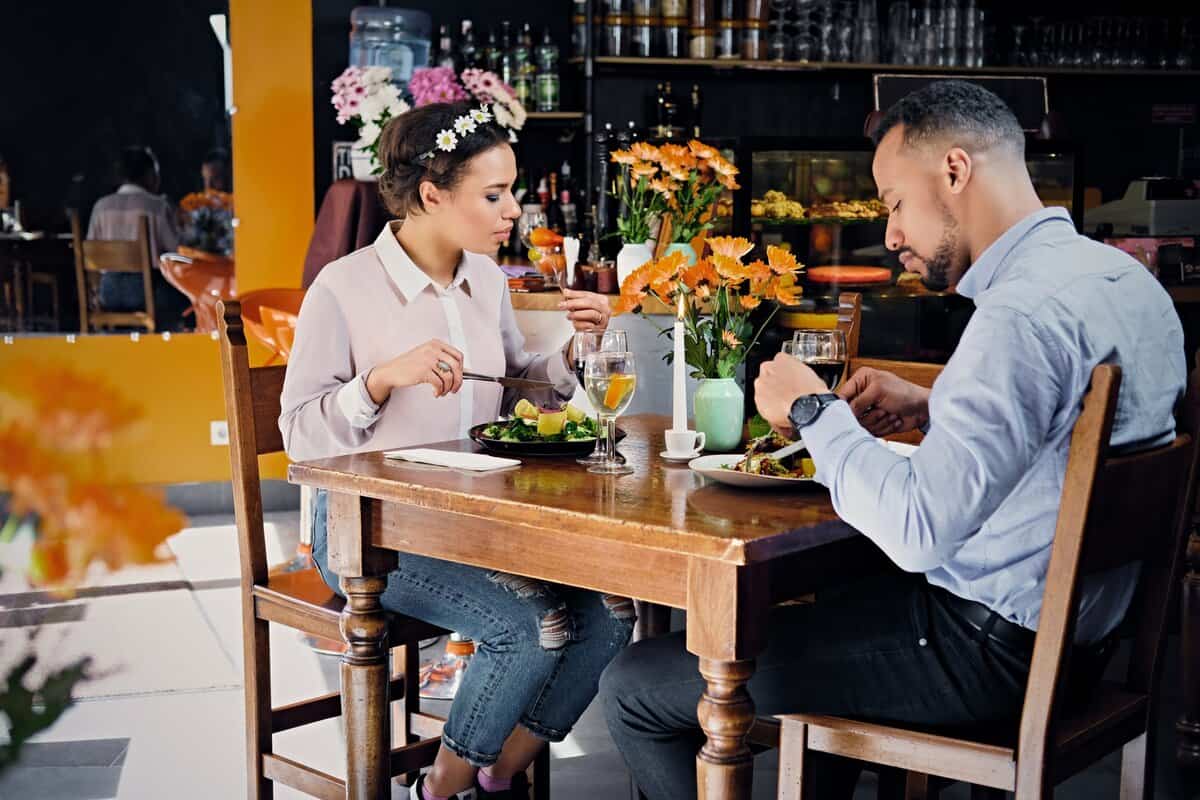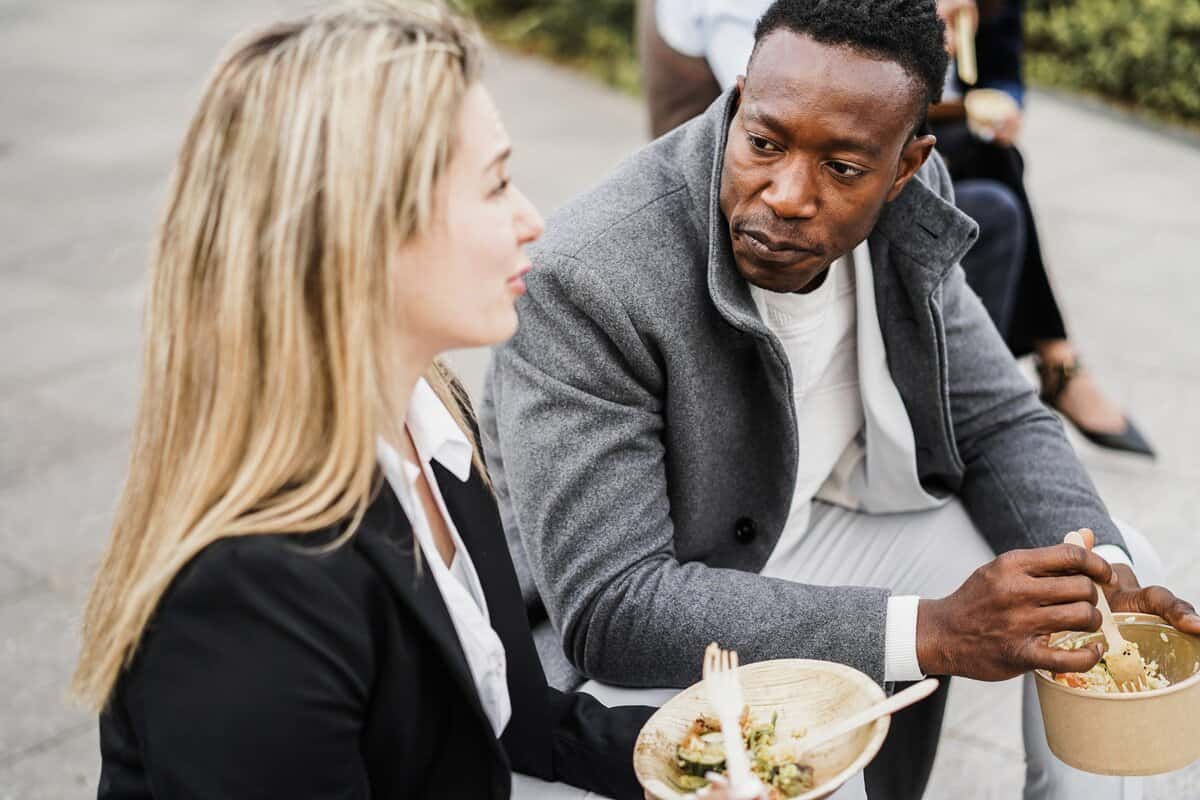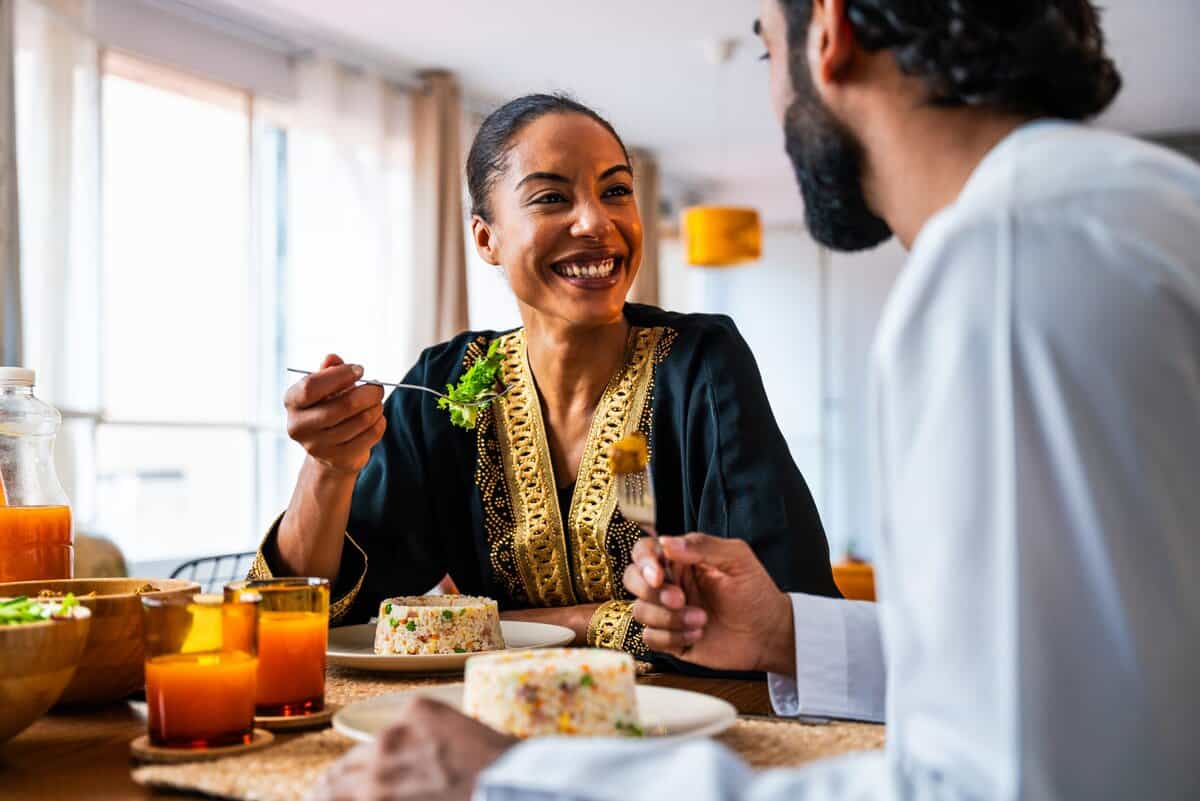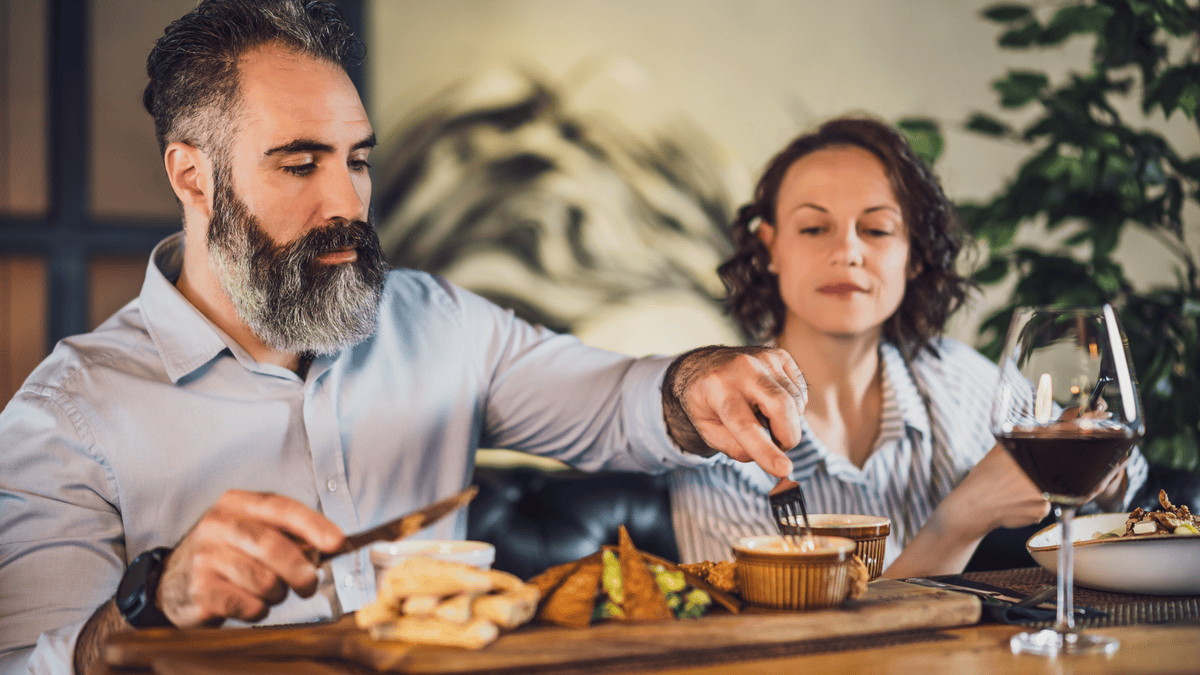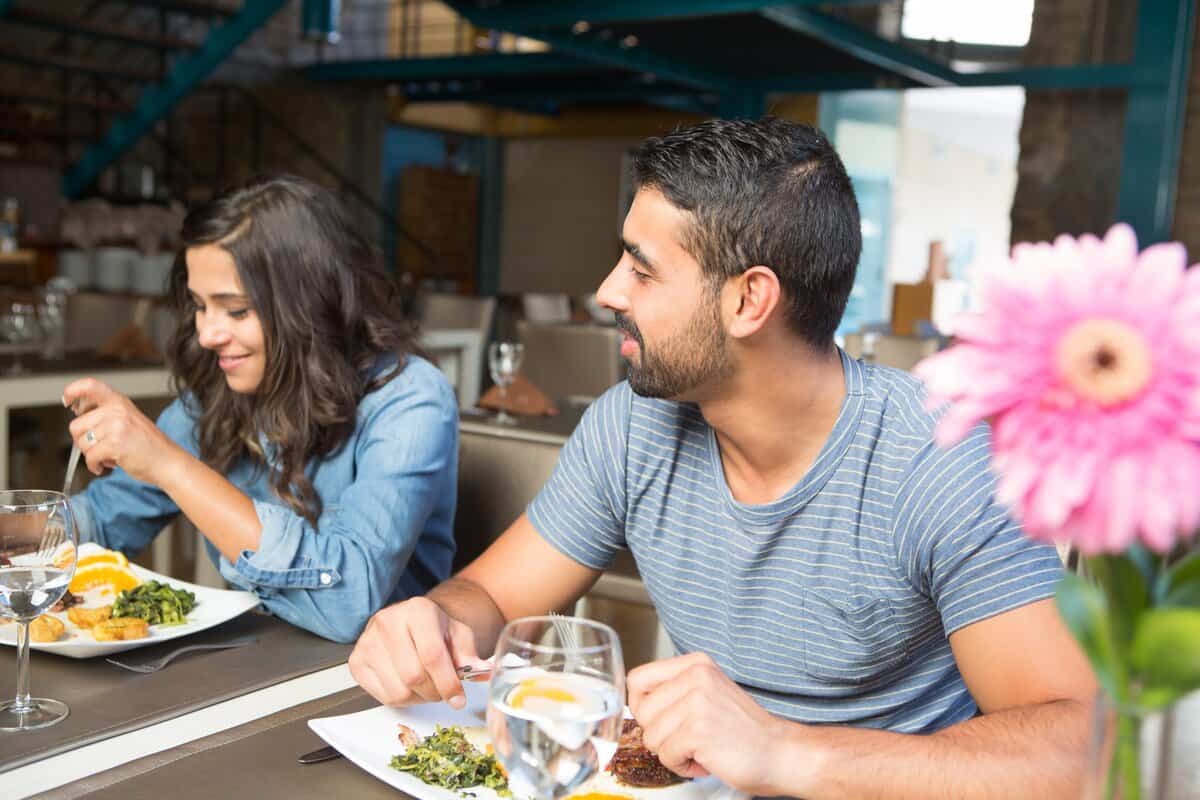Eating is one of the most important rituals in our daily lives, and the way someone eats can reveal a lot about their character.
There are many subtle signs that can show you who your partner is while eating food, even revealing a narcissist.
They Always Take the Best for Themselves
A narcissist typically shows how they think by putting their own needs first. It’s not simply rude if your partner constantly takes the biggest piece, the best piece, or feeds themselves before anyone else.
It’s a way to show they are entitled. They think they deserve more because they believe they are better than others. This shows that the energy is uneven, with giving and receiving not being equal.
Over time, this simple deed comes to stand for how they treat others: constantly taking and rarely giving. People who love one another in a healthy way exchange meals with care and thought.
In narcissistic dynamics, even food can be used to maintain hierarchy by discreetly reminding you that your needs come second.
They Criticize How You Eat or What You Choose
If your partner is always telling you what to eat and how much to eat, it’s more about control than care. Narcissists love making other people feel bad about themselves, and eating is just another way for them to show who’s the boss.
They might call their judgment “helpful advice,” but the way they say it shows that they think they are better than you. You start to mistrust yourself, even while making simple choices over time.
This kind of behavior hurts confidence and makes people more dependent on others. A caring relationship makes you feel safe and confident, not anxious.
If mealtimes make you stressed instead of calm, it’s not about food; it’s about power. Their need to control how you act shows that they are insecure and are pretending to be in charge.
They Dominate Conversation at Every Meal
When you eat, it’s a perfect opportunity to connect with others, but narcissists make it a show. If your partner always cuts you off, talks over you, or brings every conversation back to themselves, they are clearly emotionally self-absorbed.
They talk to boost their own ego, not to connect with others. You might notice that they don’t ask about your day very often, or they hardly ever listen.
This shows that the energy exchange is not balanced spiritually; one side is providing, and the other is taking. In a healthy relationship, conversation flows effortlessly, and both people are present.
When you talk to a narcissist, it feels like you’re forced to watch a show. It’s not your fault if you leave the table feeling like no one saw or heard you. They just can’t share space.
They Show Little Appreciation for Shared Effort
Narcissists typically see cooking or eating together as an obligation rather than a gift. If your partner doesn’t thank you for a meal very often, complains about the food, or never offers to help, it shows that they feel entitled.
Gratitude keeps emotional balance, whereas apathy takes it away. Narcissists find it hard to value other people because doing so would involve acknowledging that they depend on them, something they don’t want to do.
Over time, this practice breaks down respect between partners, with one spouse giving too much and the other taking without offering praise.
True love sees the little things that show you care, like making dinner or having breakfast together. When someone stops appreciating you, it’s not because they forgot; it’s because they think they’re better than you, which shows how much they really care about you.
They Use Food to Manipulate or Control
A narcissistic partner may manipulate you with food by not showing affection at meals, making you feel guilty about your choices, or using dinner arrangements to manage your schedule.
This behavior shows how they exploit everyday life to stay in charge on a spiritual level. They turn food into a bargaining tool. You might notice that they “reward” or “punish” you with food by giving you warmth when you do what they say and coldness when you don’t.
After a while, dining together no longer feels comforting and starts to feel tense. Food brings people together in good relationships, but in narcissistic ones, it becomes a way to control others.
Don’t only listen to what they say, but also pay attention to how they make you feel throughout these times. Love that is real feeds you; it doesn’t tell you what to eat or how to be happy.
When Food Reflects Power, Not Love
Food is one of the easiest ways to see how someone gives and receives. When eating is about control, judgment, or selfishness, it shows that something is wrong with that person’s emotions.
Narcissists often show their true selves through these minor daily actions because they regard every situation as a chance to show how much better they are than others.
Being attentive is what protects you spiritually. Look at the patterns, not only why they occur. A partner who really loves you will share the food and the time with you. Your soul is already telling you the truth if you feel tired instead of full after every meal.
Born and raised in Bosnia and Herzegovina. Ever since I was a little girl, my imagination knew no bounds. I remember vividly how I’d scribble down short stories, each page bursting with adventures and characters conjured up from the whimsy of my mind. These stories weren’t just for me; they were my way of connecting with my friends, offering them a slice of my fantasy world during our playtimes. The joy and excitement on their faces as we dived into my fictional realms motivated me to keep writing. This early passion for storytelling naturally evolved into my pursuit of writing, turning a childhood hobby into a fulfilling career.

